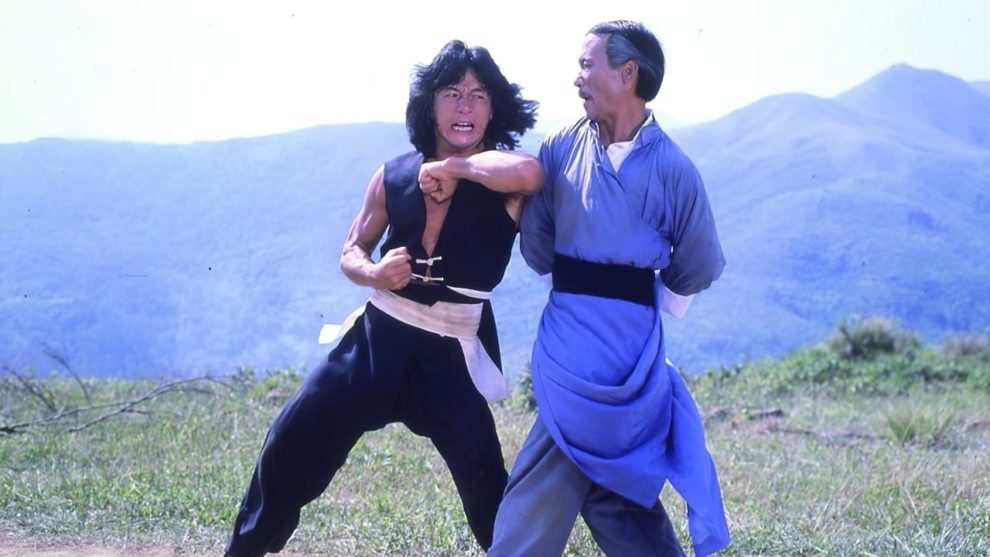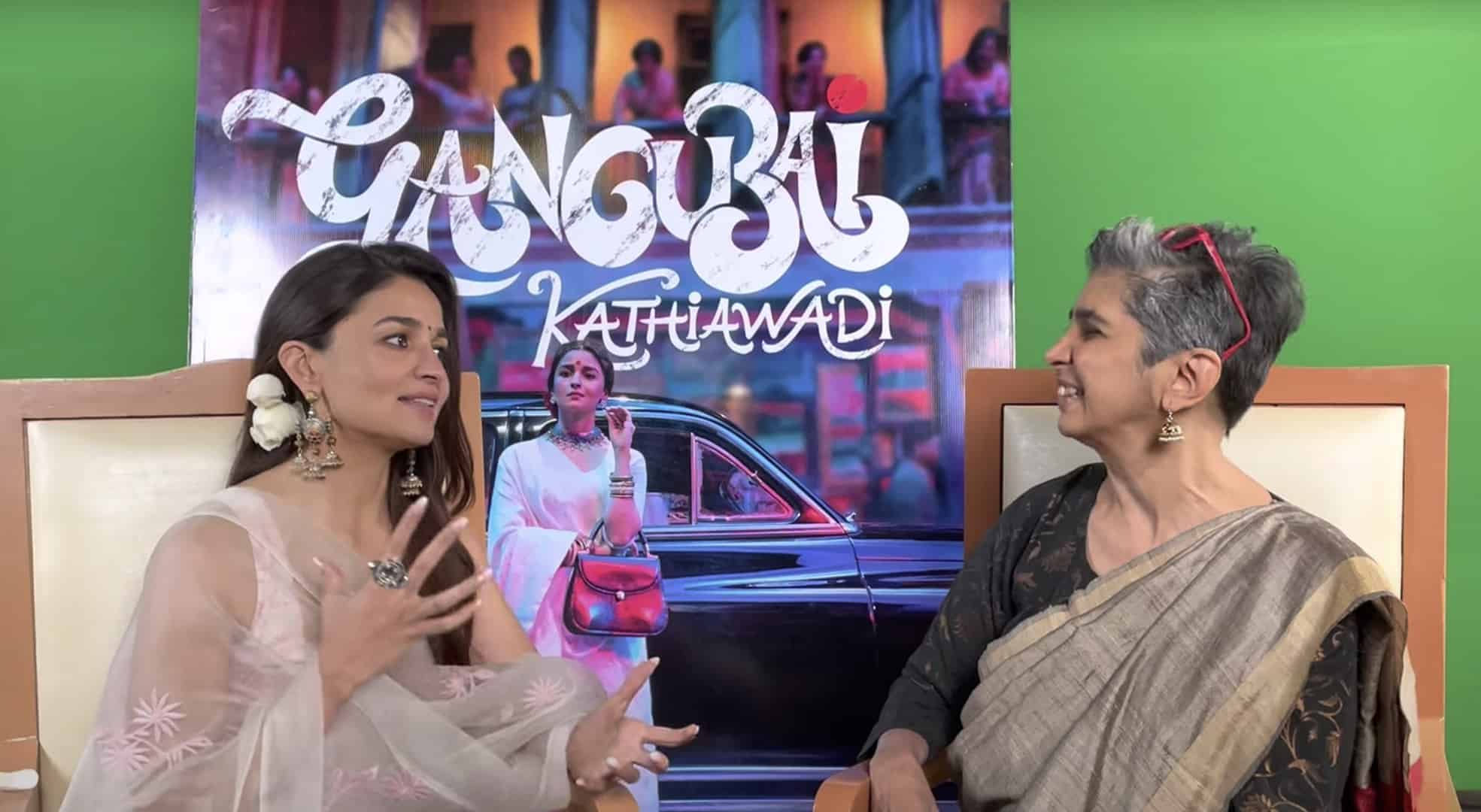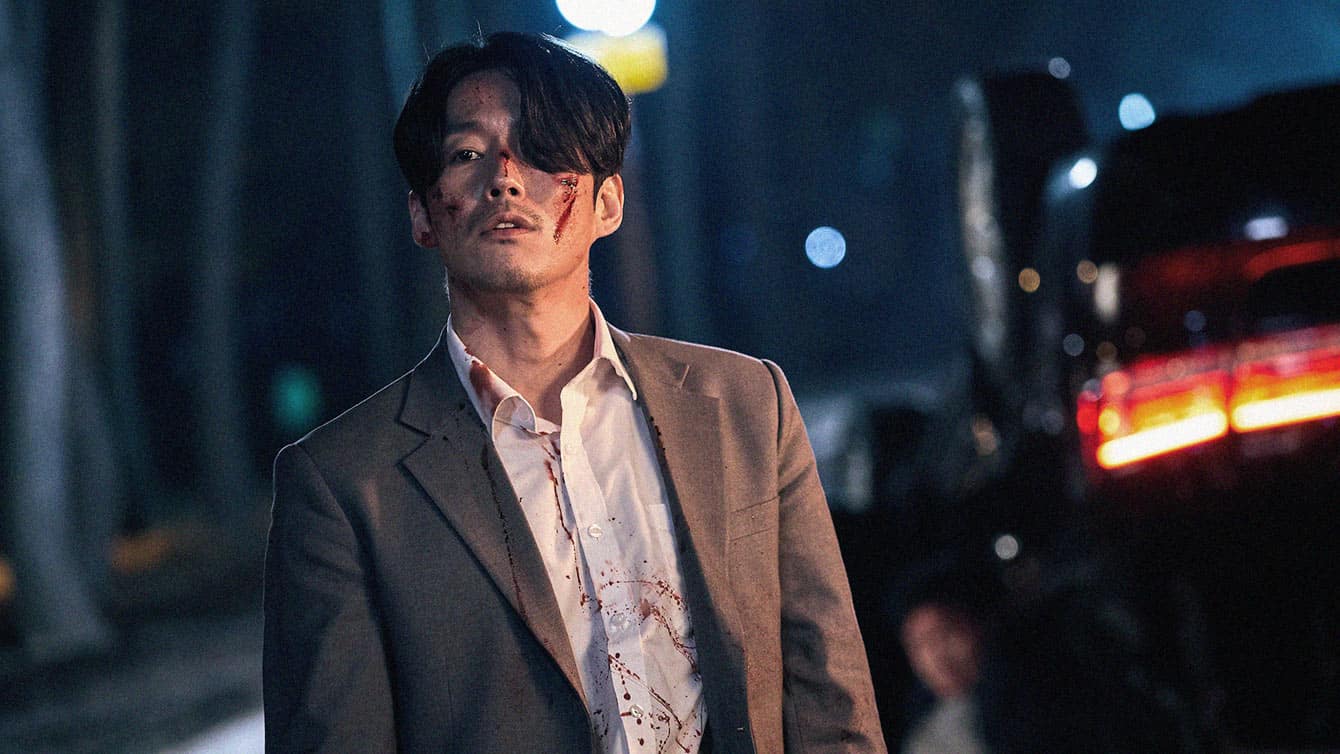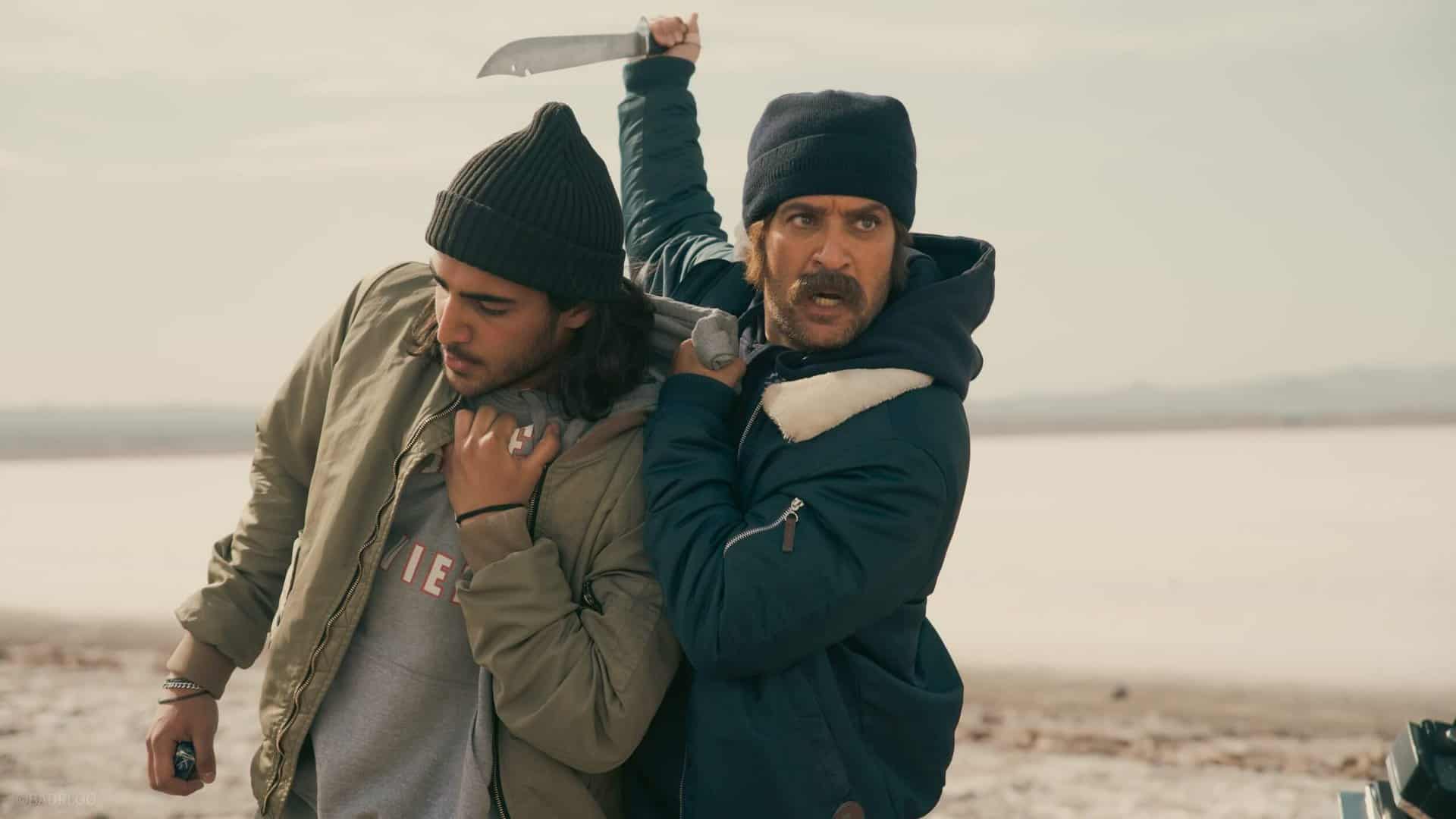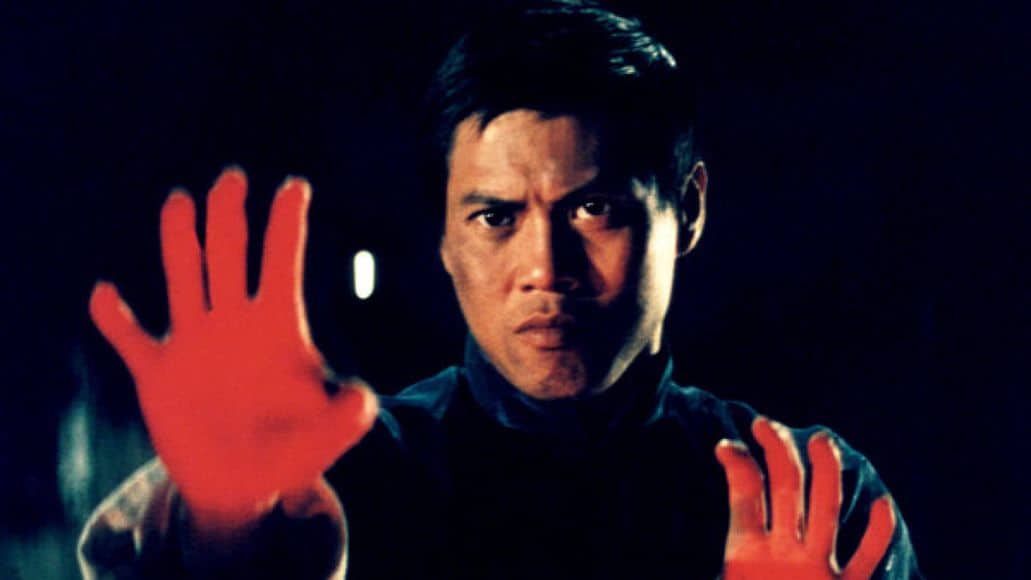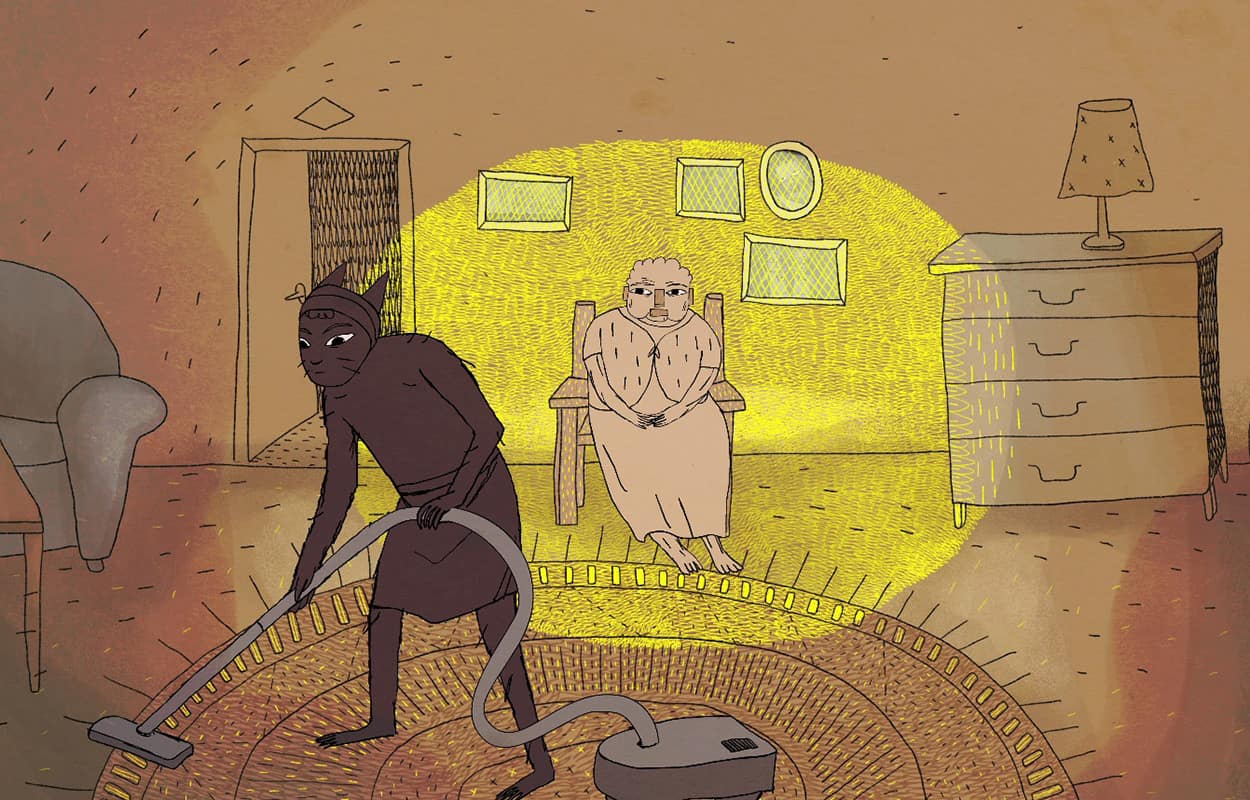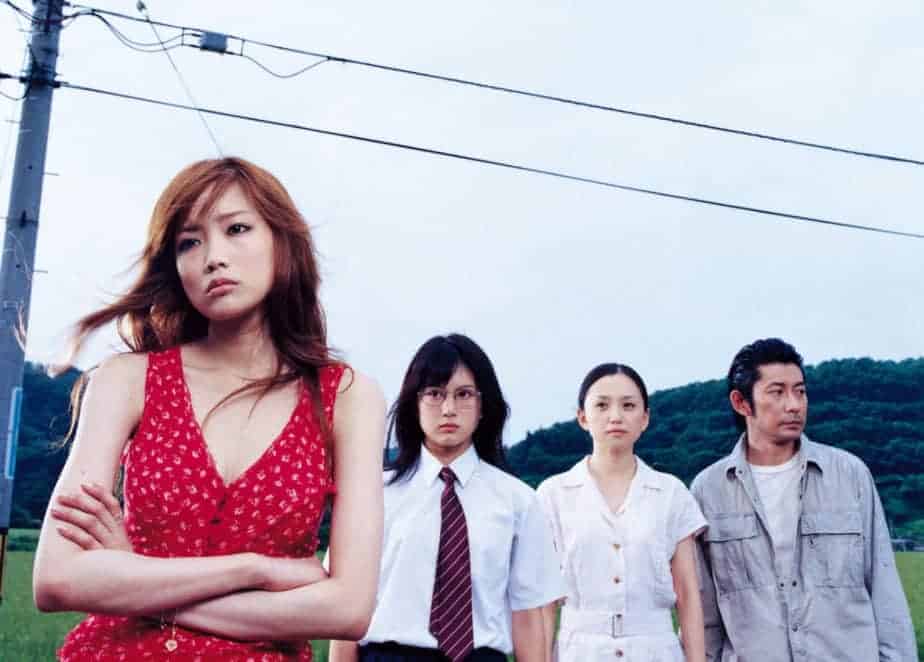The second film directed by Jackie Chan himself, after “Fearless Hyena”, was a testament to most of the characteristics that accompanied him for the rest of his career. He is great in comedy but rather bad in drama. He can take a beating like no other. He probably does not have bones in his body while he manages to appear as close to a cat as a human being could ever be. Thankfully, for the most part at least, “The Young Master” focuses on his pros.
Buy This Title
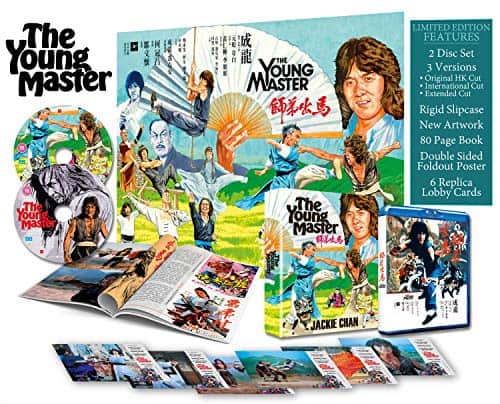
Dragon and his big brother, Tiger, are two orphans who have been taken up since childhood by Master Tien, who runs a martial arts school with an iron fist. During the lion dance competition, which the school has been winning for years and is one of its main sources of income, the start of the school, Tiger, is seemingly injured felling from a ladder, resulting in Dragon attempting the whole thing with another student. However, during the competition, Dragon realizes that his brother is not only uninjured, but he has actually received money from the lecherous owner of the rival school in order to compete for them. Master Tien's team suffers a disgraceful defeat, while soon later, it is revealed that Tiger wanted the money to hire a prostitute, a tendency he indulges frequently in. Master Tien eventually realizes what has happened, kicking Tiger out.
While Tiger collaborates with the rival school once more, this time to free the White Fan, a notorious criminal, while Dragon embarks on a mission to bring his brother back. However, en route is mistaken for The White Fan by local police chief, Sang Kung, along with his son and daughter. Dragon has now to both convince his captors that he is not a criminal and to save his brother, who has been framed by his “comrades” for a robbery. Inevitably, Dragon ends up fighting the horrifying White Fan.
The first part of the movie is rather dramatic, and essentially, not that well-done, suffering particularly from the unconvincing performance of Jackie Chan. The concept of the poor orphans, the conniving brother who betrays everyone around him, the fierce teacher who beats the hell out of his students due to his frustration, all move towards the same direction. Tien Feng as Master Tien is obviously on another level acting-wise, and the filled with tears scenes where he erupts on his students are quite impactful, but these two aspects do not save this part.
As soon as Dragon leaves the school however, the action/comedy premises that made Jackie Chan the huge star he is now come to the fore, and the movie begins to be truly entertaining. Starting with the fight of the White Fan, along with Tiger and his two bodyguards, portrayed by Hoi Sang Lee and Fung Hak, the action picks up and never actually ceases. The combination with more comedic moments, particularly the interactions of Dragon with Sang Kung and his son, played by Yuen Biao, highlight both the action choreography and provide much laughter, as the use of wooden stools, fans, long sticks and even the daughter's skirts (played delightfully by Lily Li) are implemented in the most intricate and hilarious fashion. Time and time again Jackie Chan's agility is proven, with him extending his body in ways that seem inhuman like, while the scene where he climbs upwards between two walls is bound to stay on mind. The frequent use of fast forward seems a bit misplaced at times, particularly in the fight for the release of the White Fan, but in general, works quite well inside the action comedy aesthetics.
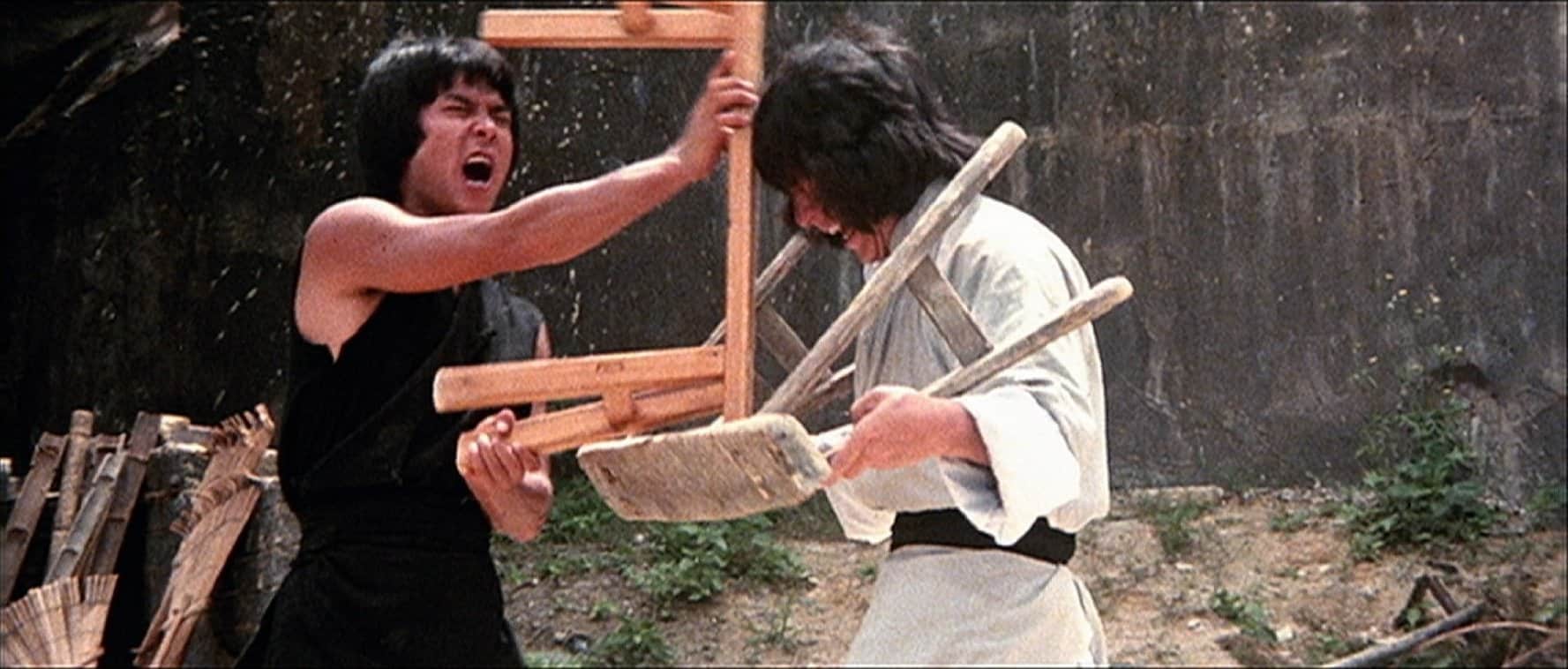
Furthermore, there is an effort at context here, as the orphan Dragon clashes with Sang Kung's son who is disrespectful and in general ungrateful towards his father.
Of course, the whole story essentially is a path towards the final fight between Dragon and the White Fan, which is the most impressive in the movie, as much as a great testament to how much beating a man can sustain, since it becomes obvious that Whang Ing-sik did not held much back in his punishment of JC. The length of the fight, the intricacy in Jackie Chan's choreography, the humor as mirrored in the cowardly behaviour of the head of the rival school, all come together and result in a truly memorable sequence, while the immediate aftermath highlights the punishment aspect even more.
Chen Ching-chu's cinematography captures the action quite accurately, while the combination with Peter Cheung's editing, which occasionally results in a series of successive zoom-ins to the faces of people interacting, seems to be an effort at dramatic effect and some artistry in the technical department, which does not have the desired effect however. On the other hand, the rather fast pace works well for the episodic nature of the narrative.
“The Young Master” is one of the films that built the myth of Jackie Chan, and a great introduction to his cinema.


